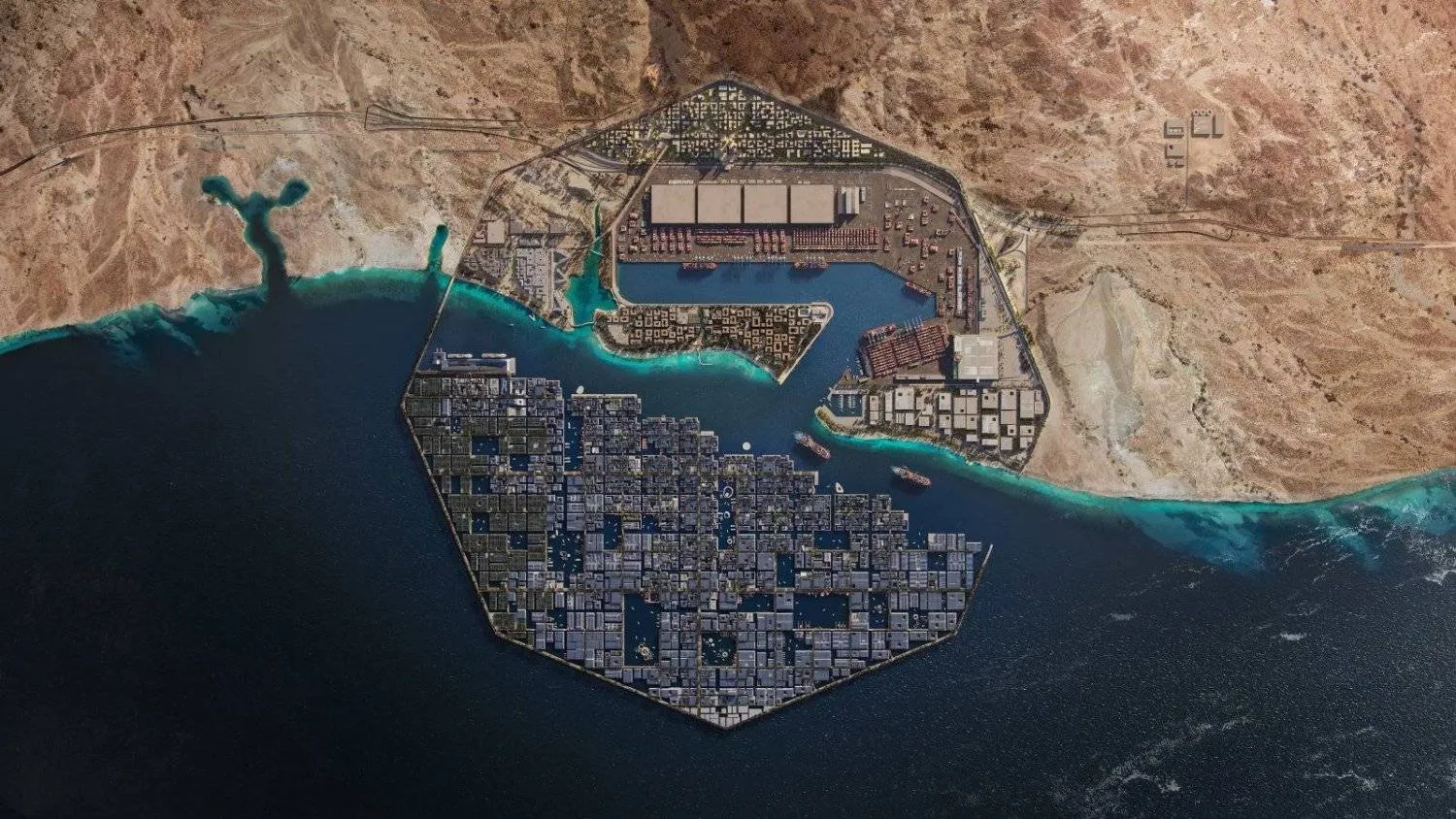Oxagon industrial city is hoping to redefine the concept of industrial cities in the world.
‘Located in NEOM, a region in northwestern Saudi Arabia, it is aiming to confront some of the world’s most pressing industrial challenges with the least impact on the environment and planet. This is a representation of NEOM’s vision to redefine livability, business, and conservation.’
Oxagon CEO Vishal Wanchoo told Asharq Al-Awsat that industrialists will be able to decrease their carbon footprint by using renewable energy at a 100% through operations that will be activated at the appropriate time to confront the challenges imposed by traditional industrial locations.
Oxagon, he stressed, embodies NEOM’s approach in changing the concept of the traditional industrial city and looking towards establishing a new model that revolves around man and innovation and consolidates values of sustainability to act as a gateway to advanced and clean sectors and industries at NEOM.
Oxagon boasts a strategic location on the Red Sea, he added, citing the NEOM port that will act as the main trade gateway to northwestern Saudi Arabia.
Moreover, he said industrial companies that are seeking to expand their operations and establish factories in Oxagon will be encouraged to adopt the best sustainable practices followed by NEOM.
This will help drive the circular economy, he explained. This can be achieved through the application of four strategies: design, industry, utilization and recoupment.
‘This approach will support the highly advanced marine port and integrated supply chain network. It will allow manufacturers at Oxagon to directly and transparently reach markets in NEOM, Saudi Arabia and the whole region in a way that can be more sustainable than moving goods by road or air, Wanchoo went on to say. The CEO explained that each container coming into Port of NEOM could save up to one tonne of CO2 emissions, compared to on-land transportation.’
Moreover, he revealed that plans are in place to build a system of research and innovation that will make Oxagon the optimal destination for innovators and entrepreneurs where they can be empowered to innovate and manufacture their products and put them on the market in NEOM or abroad.
NEOM port will act as a vital link in the direct connection with global markets, he said. This will boost the competitiveness of the region and help the growth of the Kingdom’s economy.
Manufacturing at Oxagon will help in social and economic development across NEOM, he stressed.
Industry at NEOM will be based on the fourth industrial revolution and the development of talents. This will allow companies to develop sustainable products and services.
At the end of the day, everything taking place at Oxagon supports NEOM’s ambitions and is aligned with Saudi Arabia’s Vision 2030, Wanchoo added.
Moreover, he stressed that the city’s location on the Red Sea provides a perfect opportunity for industrial companies seeking to expand their operations to enter new ones. They will also benefit from Saudi Arabia’s strategic location as an entry point to main and greater markets and provide faster contacts with local and international markets.
Wanchoo said what Oxagon was doing was radically different from what traditional industrial cities were doing.
He explained that it is working on empowering an industrial model that beats with the development of its society. “This encourages us to provide a high quality of living standard for residents and workers alike,” he added. Oxagon will provide a vibrant social environment for talents, researchers, experts and entrepreneurs.
He revealed that work is underway on the expansion of NEOM port that will serve the world’s largest vessels. The port is expected to have a capacity of over 1.5 million containers by 2025.
The year 2026 will witness the first phase of the construction of the first permanent residential compound in NEOM and Yotel Hotel will open its doors in Oxagon.
NEOM has also started building the world’s largest green hydrogen plant in Oxagon and it will enter production in 2026.
The plant will be a major player in creating job opportunities and bolster local production, added Wanchoo.
“The size, scale, and ambition of Oxagon is complex,” he added. “That is why we are keen on forging partnerships with companies from around the world to ensure that our vision is translated into reality.”









